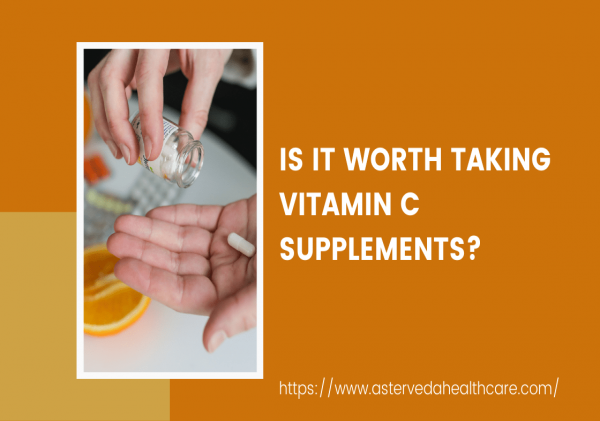- Why Us
-
Brands
- Asterveda
- LivonLabs.
- Liposomal Vitamin C | Supports Natural Collagen Production, Immune System, Antioxidants - 30 Sachet
- Lypo-Spheric R-Alpha Lipoic Acid | Liposomal Encapsulation |Maximized Absorption - 30 Sachet
- Lypo-Spheric Acetyl L-Carnitine | Liposomal Encapsulation Technology
- Lypo-Spheric Vitamin B-Complex Plus | Liposomal Encapsulation Technology
- Lypo-Spheric Glutathione
- Lypo-Spheric Magnesium Threonate
- Qunol
- WellnessExtract
- GG Essential | Annatto Derived Dietary Supplement | Cardiovascular Support For Statin Users
- Tocotrienols Vitamin E 125 mg Supplements | Master Antioxidant
- Tocotrienols Vitamin E - 300mg 30-softgels |Eannatto Deltagold (90% Delta & 10% Gamma)
- Bio-Qunol Ubiquinol (CoQ10) Supplement with 50mg GG gold - 100mg - 60
- Shops
- Blogs
- Contact Us
- More
- Why Us
-
Brands
- Asterveda
- LivonLabs.
- Liposomal Vitamin C | Supports Natural Collagen Production, Immune System, Antioxidants - 30 Sachet
- Lypo-Spheric R-Alpha Lipoic Acid | Liposomal Encapsulation |Maximized Absorption - 30 Sachet
- Lypo-Spheric Acetyl L-Carnitine | Liposomal Encapsulation Technology
- Lypo-Spheric Vitamin B-Complex Plus | Liposomal Encapsulation Technology
- Lypo-Spheric Glutathione
- Lypo-Spheric Magnesium Threonate
- Qunol
- WellnessExtract
- GG Essential | Annatto Derived Dietary Supplement | Cardiovascular Support For Statin Users
- Tocotrienols Vitamin E 125 mg Supplements | Master Antioxidant
- Tocotrienols Vitamin E - 300mg 30-softgels |Eannatto Deltagold (90% Delta & 10% Gamma)
- Bio-Qunol Ubiquinol (CoQ10) Supplement with 50mg GG gold - 100mg - 60
- Shops
- Blogs
- Contact Us
- More
- Home
- Blogs
- Vitamins & Minerals
- IS IT WORTH TAKING VITAMIN C SUPPLEMENTS?
IS IT WORTH TAKING VITAMIN C SUPPLEMENTS?
IS IT WORTH TAKING VITAMIN C SUPPLEMENTS?

Vitamin C can be categorised as the most effective and safest nutrient. It won't be right to call it the cure for the common cold and similar infections but its proper intake may bring protection against various immune deficiencies, cardiovascular disease (diseases of heart and blood vessels), eye disorders, prenatal health problems, and even skin ageing. The maximum tolerable dose (or the maximum amount one can consume in a day that causes minimum harm) is 2000 mg per day for adults.
Why is Vitamin C supplementation required?
According to a study done by Moyad, we need to take an extra 500 mg of vitamin C a day, in addition to taking five servings of fruits and vegetables that can provide a surplus quantity of this vitamin. Moyad says that it is nearly impossible to meet this requirement through our diet only, so supplementation can be opted for attaining such health goals. He says there is no strong downside of taking a 500 mg supplement. However, some may suffer stomach distress up to some extent due to its intake. Therefore, one can consume liposomal preparations of this vitamin to outsmart this distress or any other adverse effect.
However, for meeting the dietary requirement of vitamin C, a cup of orange juice or a half-cup of red pepper can substantially meet your RDA for Vitamin C. Here is the list of all the foods and beverages that can help us meet the dietary half of the requirement:
- Orange juice: 97 mg (1 cup)
- Cantaloupe : 59 mg (1 cup; 8 ounces)
- Cooked Broccoli: 74 mg (1 cup)
- Green pepper: 60 mg (1/2 cup)
- Red cabbage: 40mg (1/2 cup)
- Kiwi : 70mg (1)
- Red pepper: 95mg (1/2 cup)
- Tomato juice: 45mg (1/2 cup)
Role of Vitamin C in our body
Ascorbic acid or simply vitamin C is a very necessary element for the growth, development, and repair of our body tissues and structures. It's involved in many body functions, like synthesis of collagen, absorption of minerals like iron, optimised immune system functioning, speedy wound healing, and the proper maintenance of bones, cartilage, and teeth.
Vitamin C is one of the very strong natural antioxidants that can help in preventing damage caused by certain harmful and unstable molecules that are called free radicals. Moreover, it aids in detoxification also by eliminating various toxic chemicals and pollutants from our body. The cigarette smoke and environmental pollution become the major cause of such harmful toxins. Free radicals are generated during various body activities like respiration, digestion, breathing, etc. These reactive species contribute to the development of certain life threatening health conditions like cancer, heart ailments, and arthritis.
Since vitamin C is not stored in our body as excess amounts of it are excreted out, therefore overdosing is not a matter of concern. But still it is very important to not consume it beyond the safe upper limit of 2,000 mg per day. This is to prevent stomach upset and diarrhoea associated with vitamin C consumption.
It is a well-known fact that these vitamin molecules degrade in the gut environment because of the low pH (acidic), high pH (basic), and enzymatic attack. Therefore, a very little vitamin C reaches the bloodstream. This happens during consumption of this nutrient in dietary form or supplementary form (tablet, pills, capsules, and powder). However, a latest and advanced technology called Liposomal Encapsulation Technology can help in intake of vitamin C for 95% absorption and bioavailability by enclosing the nutrient molecules in liposomal covers or fat bubbles.

 0
0

